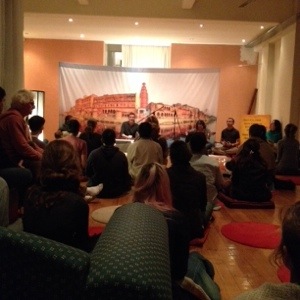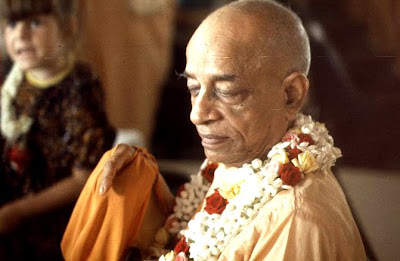Social Studies TEKS require students to be able to understand and explain the different variety of land formations, and how they are formed. Older students are required to give a historical background of famous landforms around America and locate them on a map.
This last project of the year was one of our most exciting! We watched the Tall Tale of Paul Bunyan, and his Giant Family trekking through America, creating mountain ranges, canyons, rivers, and more! We read books from the Library on canyons, valleys, mesas, peninsulas and more!
Yes, there were FOURTEEN different types of landforms that were studied, with a Landform Scavenger Hunt and an illustration book on all the Landforms. Yellow Cards were placed all around the building, hidden behind doors and taped onto counters. Students raced to find them, looking for answers to questions on the Landform sheets.
For the Landform end of Unit Project, they used silly string, construction paper, play dough, and clay to create a world of their own, complete with all the different types of Landforms and labeled.
Learning becomes concrete when they’re having fun! All students aced the Landforms Test on 14 different types of Landforms at the end of the Unit. Ask one of them the difference between a plain and a plateau is the next time you see them!
 Govardhan Eco Village (GEV), a project inspired by Radhanath Swami, illustrates 'Simple Living & High Thinking' -- a principle which is so succinct, yet profound, and formed the basis of life in the bygone age of wisdom. Life in the Vedic times was focused on service, and not on exploitation; this was the cardinal rule of living and the very essence of people's dealings -- with each other and that with Mother Nature. With the concepts of eco living being innate, the Vedic lifestyle was truly an eco friendly way of living life as instanced in the timeless Vedic scriptures like Srimad Bhagavatam and Bhagavad-Gita. Read more ›
Govardhan Eco Village (GEV), a project inspired by Radhanath Swami, illustrates 'Simple Living & High Thinking' -- a principle which is so succinct, yet profound, and formed the basis of life in the bygone age of wisdom. Life in the Vedic times was focused on service, and not on exploitation; this was the cardinal rule of living and the very essence of people's dealings -- with each other and that with Mother Nature. With the concepts of eco living being innate, the Vedic lifestyle was truly an eco friendly way of living life as instanced in the timeless Vedic scriptures like Srimad Bhagavatam and Bhagavad-Gita. Read more ›  Govardhan Eco Village (GEV), a project inspired by Radhanath Swami, illustrates 'Simple Living & High Thinking' -- a principle which is so succinct, yet profound, and formed the basis of life in the bygone age of wisdom. Life in the Vedic times was focused on service, and not on exploitation; this was the cardinal rule of living and the very essence of people's dealings -- with each other and that with Mother Nature. With the concepts of eco living being innate, the Vedic lifestyle was truly an eco friendly way of living life as instanced in the timeless Vedic scriptures like Srimad Bhagavatam and Bhagavad-Gita. Read more ›
Govardhan Eco Village (GEV), a project inspired by Radhanath Swami, illustrates 'Simple Living & High Thinking' -- a principle which is so succinct, yet profound, and formed the basis of life in the bygone age of wisdom. Life in the Vedic times was focused on service, and not on exploitation; this was the cardinal rule of living and the very essence of people's dealings -- with each other and that with Mother Nature. With the concepts of eco living being innate, the Vedic lifestyle was truly an eco friendly way of living life as instanced in the timeless Vedic scriptures like Srimad Bhagavatam and Bhagavad-Gita. Read more ›  With Sivarama Swami
With Sivarama Swami  This short video shows breathtaking aerial views of Sridham Mayapur, including the construction site of the largest Radha-Krishna temple in the world.
This short video shows breathtaking aerial views of Sridham Mayapur, including the construction site of the largest Radha-Krishna temple in the world.  This spectacular four-minute video from BhakTV shows a massive crane lifting a one-ton stainless-steel panel onto the center dome of the Temple of the Vedic Planetarium in Sridham Mayapur, India. The crane is accompanied by a remote-controlled miniature helicopter with an on-board HD video camera. With complementary footage from a second camera on the ground, "Another Panel On The Dome" presents a view of how the constuction of this immense dome will proceed, panel by panel. Two hundred fifty panels will be fitted into place to form a massive glittering steel dome with a base measuring over fifty meters across (150ft) at a height of 70 meters (200ft) above the ground. And this is only stage one. The steel dome will act as a base for a layer of concrete poured on top of it. The present stage is the most critical in this momentous project -- a double-width dome on a world-class religious structure, the largest Hindu temple to be built in decades.
This spectacular four-minute video from BhakTV shows a massive crane lifting a one-ton stainless-steel panel onto the center dome of the Temple of the Vedic Planetarium in Sridham Mayapur, India. The crane is accompanied by a remote-controlled miniature helicopter with an on-board HD video camera. With complementary footage from a second camera on the ground, "Another Panel On The Dome" presents a view of how the constuction of this immense dome will proceed, panel by panel. Two hundred fifty panels will be fitted into place to form a massive glittering steel dome with a base measuring over fifty meters across (150ft) at a height of 70 meters (200ft) above the ground. And this is only stage one. The steel dome will act as a base for a layer of concrete poured on top of it. The present stage is the most critical in this momentous project -- a double-width dome on a world-class religious structure, the largest Hindu temple to be built in decades. 




















 On the day of Aksaya Tritiya in Vrindavan, all large Goswami Temple Deities are covered with chandan Paste and not a bit of cloth used to cover the deities in the afternoon. The festival is also celebrated in our ISKCON Vrindavan temple and it usually continues for 21 days with the Utsava Vigrahas covered in chandan. The Deities are covered completely with chandan (sandalwood paste), which provides the Lord relief from the scorching heat of summer in the month of Vaisakha/Jyestha (May/June).
[ Photo courtesy : iskconvrindavan.com]
On the day of Aksaya Tritiya in Vrindavan, all large Goswami Temple Deities are covered with chandan Paste and not a bit of cloth used to cover the deities in the afternoon. The festival is also celebrated in our ISKCON Vrindavan temple and it usually continues for 21 days with the Utsava Vigrahas covered in chandan. The Deities are covered completely with chandan (sandalwood paste), which provides the Lord relief from the scorching heat of summer in the month of Vaisakha/Jyestha (May/June).
[ Photo courtesy : iskconvrindavan.com]  The UK Hare Krishna Festival team coordinated a hugely successful event at the University of Essex in Colchester. With the support of a devotee run local Student Society, Bhaktivedanta Manor and Food for All, over 180 people had an evening to remember. From the widely diverse audience of students and public - young and old, from English Buddhists to Lebanese Muslims - everyone deeply appreciated the music, dance, philosophy and Prasad. The local Mayor and other dignitaries also attended and spoke very favourably of the devotees' contribution to the community.
The UK Hare Krishna Festival team coordinated a hugely successful event at the University of Essex in Colchester. With the support of a devotee run local Student Society, Bhaktivedanta Manor and Food for All, over 180 people had an evening to remember. From the widely diverse audience of students and public - young and old, from English Buddhists to Lebanese Muslims - everyone deeply appreciated the music, dance, philosophy and Prasad. The local Mayor and other dignitaries also attended and spoke very favourably of the devotees' contribution to the community. 
 Chanting Hare Krishna with the musical arrangement of a symphonic orchestration.
Chanting Hare Krishna with the musical arrangement of a symphonic orchestration.  With Vaisesika Prabhu.
With Vaisesika Prabhu.  Material affairs have been compared to an ocean of poison. They have been described in a similar way by Srila Narottama dasa thakura in one of his songs:
samsara-visanale,
diva-niSi hiya jvale,
judaite na kainu upaya
"My heart is always burning in the fire of material existence. and I have made no provisions for getting out of it."
golokera prema-dhana,
hari-nama-sankirtana,
rati na janmila kene taya
"The only remedy is hari-nama-sankirtana, the chanting of the Hare Krsna maha-mantra, which is imported from the spiritual world, Goloka Vrndavana. How unfortunate I am that I have no attraction for this."
(Srimad Bhagavatam——5:1:22——-purport).
Material affairs have been compared to an ocean of poison. They have been described in a similar way by Srila Narottama dasa thakura in one of his songs:
samsara-visanale,
diva-niSi hiya jvale,
judaite na kainu upaya
"My heart is always burning in the fire of material existence. and I have made no provisions for getting out of it."
golokera prema-dhana,
hari-nama-sankirtana,
rati na janmila kene taya
"The only remedy is hari-nama-sankirtana, the chanting of the Hare Krsna maha-mantra, which is imported from the spiritual world, Goloka Vrndavana. How unfortunate I am that I have no attraction for this."
(Srimad Bhagavatam——5:1:22——-purport).  With Romapada Swami
With Romapada Swami  Srila Prabhupada’s most cherished dream for Sridham Mayapur was his bold vision for the Sri Mayapur Chandrodaya Mandir – Temple of the Vedic Planetarium. He envisioned a beautiful temple, which would bring people from all over the world to the birthplace of Chaitanya Mahaprabhu. He also wanted the temple to be a Vedic Planetarium, which would present the universe according to the Srimad Bhagavatam, the essence of all Vedic literature and Vedantic philosophy. The Vedic Planetarium would directly challenge the accepted modern version of the universe, and establish the legitimacy of the Vedic version, as well as using science to counteract the prevalence of modern atheism. Srila Prabhupada proposed to exhibit the universe in an exposition, which would take the viewer on a journey through the material cosmos to the spiritual world; all according to the descriptions found in Srimad Bhagavatam. Srila Prabhupada wanted these exhibits as well as a beautiful temple housed in a specially built domed building. The temple would also house the Institute of Vedic Cosmology which would continue research into, and discussion of the Vedic account of the universe.
Srila Prabhupada’s most cherished dream for Sridham Mayapur was his bold vision for the Sri Mayapur Chandrodaya Mandir – Temple of the Vedic Planetarium. He envisioned a beautiful temple, which would bring people from all over the world to the birthplace of Chaitanya Mahaprabhu. He also wanted the temple to be a Vedic Planetarium, which would present the universe according to the Srimad Bhagavatam, the essence of all Vedic literature and Vedantic philosophy. The Vedic Planetarium would directly challenge the accepted modern version of the universe, and establish the legitimacy of the Vedic version, as well as using science to counteract the prevalence of modern atheism. Srila Prabhupada proposed to exhibit the universe in an exposition, which would take the viewer on a journey through the material cosmos to the spiritual world; all according to the descriptions found in Srimad Bhagavatam. Srila Prabhupada wanted these exhibits as well as a beautiful temple housed in a specially built domed building. The temple would also house the Institute of Vedic Cosmology which would continue research into, and discussion of the Vedic account of the universe.